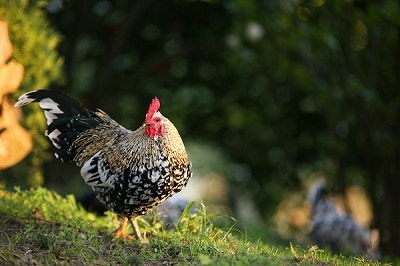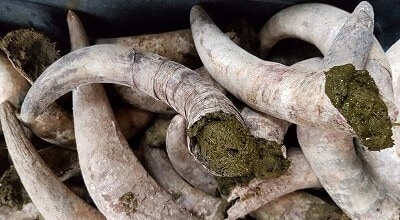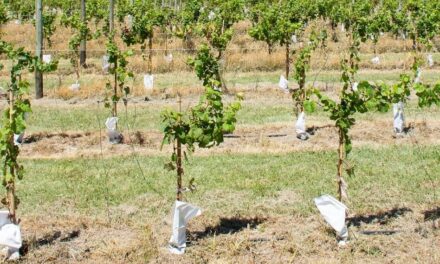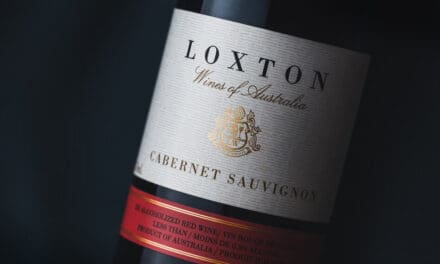Food produced by using organic, eco-friendly, and sustainable methods is becoming increasingly popular these days. And consumers are more conscious when shopping for groceries. They actively demand products free of additives, chemicals, and similar artificial ingredients. Most of them have at least a rough idea about organic farming. But only a few people know about the biodynamic way to grow and process crops. However, biodynamic wine has been around for quite some time, and it is a growing trend among winemakers.
Biodynamic wine is produced by following the approach of biodynamic farming. This holistic approach combines organic agricultural practices with philosophical, spiritual, and ecological ideas. The main goal behind it is to cultivate crops in a conscientious and sustainable way.
To better understand biodynamic winemaking, let us have a look at biodynamic farming in general first.
WHAT IS BIODYNAMIC FARMING?
The Austrian philosopher Rudolph Steiner introduced the concept of biodynamic farming in the 1920s. He believed that living in general and agriculture, in particular, should happen in balance and harmony with nature and the earth. His biodynamic farming model combined two aspects:
- First, he promoted organic farming methods. These include using natural soils and fertilizers and the absence of aggressive chemical pesticides and herbicides. But the focus on locally organized agriculture is an important aspect as well.
- Second, Steiner followed more controversial concepts, such as the lunar calendar and stellar constellations. The core idea behind these concepts is rooted in astrology. It says that forces that humans cannot perceive with their senses structure the universe. They connect a farm and the people who cultivate it with the rest of the world and the universe.
The combination of both aspects resulted in several practices that define biodynamic farming.
The Biodynamic Calendar
A central concept of biodynamic farming is the biodynamic calendar. Maria Thun, a German follower of Steiner’s doctrines, developed it. Based on the orientation of the moon and the stars, this calendar differentiates four types of days. Each type represents one of the classical elements of earth, air, fire, and water. And each of the elements represents a specific type of crop:
- Root Days are earth days when the moon is in the signs Capricorn, Taurus, or Virgo. They are ideal for working with root plants like carrots, potatoes, or onions.
- Leaf Days represent water and the water signs Cancer, Scorpio, and Pisces. These are best for dealing with leaf plants, including cabbage, lettuce, and kale.
- Flower Days stand for the air. On air days, the moon is in the signs Gemini, Libra, or Aquarius. They are perfect for caring about flower crops like broccoli and artichokes.
- Fruit Days stand for the fire signs Aires, Leo, and Sagittarius. They are the right days to work with fruit plants, such as apple trees, grains, legumes, tomatoes, and grapes.
Focus on Biodiversity

Rooster on Biodynamic Farmland
The diversity of plant and animal life is a central element of biodynamic farming. It stands in contrast to traditional monocultural farming. By rotating crops and integrating animals, biodynamic farmers try to create a balanced farm organism that provides nutrients for all kinds of life.
Another important aspect of biodynamic farming is composting. Its goal is to create living soils that provide a level of health and nutrition that cannot be achieved using chemical fertilizers.
By preparing compost with medical herbs such as yarrow or dandelion, biodynamic farmers fasten the growth of beneficial bacteria that stabilize the compost’s nutrients. This compost is attuned to the farm organism and its surroundings. It enhances the quality of soils as well as of organic matter.
Your content goes here. Edit or remove this text inline or in the module Content settings. You can also style every aspect of this content in the module Design settings and even apply custom CSS to this text in the module Advanced settings.
HOW IS BIODYNAMIC WINE MADE?
In their daily work, biodynamic winemakers follow organic standards. They cultivate their vineyards without using any chemical fertilizers or plant protection products. They do composting and prepare their soils according to the practices mentioned above.
Besides, they create biodiversity on their farms by integrating perennial plants as well as animals. According to the biodynamic farming standards, they must maintain at least 10% of their land for this purpose.
They also take the biodynamic calendar into account when working on their vineyard. Typically, they address the different types of days with specific tasks:
- On Root Days, winemakers prune their plants.
- Leaf Days are the time for watering the wine stocks.
- Fruit Days are the best days for harvesting grapes.
- On Flower Days, the vineyard is left alone to recover.
Biodynamic winemaking does not stop at the harvest. During the crushing of the grapes, the fermentation, and the aging process, winemakers follow specific guidelines. For instance, they do not manipulate the wine by adding aromatic yeast, sweeteners, or enzymes. They also do not adjust acidity or sulfites levels artificially.
IS BIODYNAMIC A REGULATED LABEL?
There is no such thing as an official biodynamic label by the government. However, winemakers can get a certification, which proves that they follow biodynamic standards. The Demeter organization, a non-profit organization, issues this certification. For this purpose, they check and approve applicants’ vineyards regularly. As the term “Biodynamic” is a protected trademark, winemakers cannot use it without a Demeter certification.
Winemakers have to pay for the review. For this reason, especially small wineries might not have a certification, although they follow biodynamic practices because they cannot afford it.
Besides Demeter, several other international organizations dedicate themselves to biodynamic winemaking. Examples are Respekt Biodyn in Austria and Biodyvin and Renaissance des Appellations in France.
IS BIODYNAMIC WINE THE SAME AS ORGANIC WINE?
Biodynamic and organic are not interchangeable with each other, although there are strong similarities between the two.
Biodynamic winemakers follow organic standards, such as the absence of chemical components. But they also include a set of unique practices that go far beyond these organic standards. The most obvious examples are the consideration of the lunar calendar and unique composting methods.
In conclusion, it is fair to say that all biodynamic wines are organic wines. But not all organic wines are biodynamic.
IS BIODYNAMIC WINE VEGAN?
Biodynamic wine itself is vegan because winemakers do nott use any animal products as ingredients. However, you can consider some aspects of the production process non-vegan.
For instance, biodynamic winemakers use animal materials like cow horns or bones when preparing the soils for their vines. Besides, they rely on animal manure as a fertilizer.
Ultimately, it is up to you as a vegan to decide whether biodynamic winemaking is in line with your diet.

Biodynamic Soil Preparation
IS BIODYNAMIC WINE KOSHER?
Biodynamic wine is not necessarily kosher. It can be, but the sole fact that the winemaker followed biodynamic principles doesn’t mean that it is kosher.
Whether a wine is kosher or not does not depend on the use of specific processes or techniques. It depends on religious requirements. For instance, it is not important whether grapes are harvested on a fruit day or a leaf day. However, it’s crucial that sabbath-observant male Jews harvest them.
If you want to drink a kosher vine, you should not rely on the biodynamic certificate. Better search for wines that carry an explicit kosher label.
WHICH COUNTRIES PRODUCE BIODYNAMIC WINE?
Biodynamic wines are made all over the world. It is still a niche within the industry, but more and more winegrowers are turning towards biodynamic principles.
The biodynamic movement started in France. The region of Alsace in the Eastern part of the country, close to the German border, is the home of the first Demeter-certified vineyard. Its owners, the Meyer family, have produced biodynamic wine since the late 1960s. During the 1980s, several other influential winemakers from France turned to biodynamic techniques.
In the United States, the ideas of Rudolph Steiner spread in the 1960s and 70s. Especially in California and Oregon, you can nowadays find many biodynamic vineyards. Besides, biodynamic wineries operate in many European countries, including Austria, Germany, Greece, Italy, Portugal, and Spain. But you can also find them in Australia or Canada.
DOES BIODYNAMIC WINE TASTE DIFFERENT FROM REGULAR WINE?
Biodynamic producers claim that their wines taste better than regular wines. And they name the more conscious and more natural production process as the main reason. But there is some controversy around this question among wine experts. Some of them argue that the two do not differ distinctively. In the end, it is most likely a question of personal preference. So the best way to find out is to try biodynamic wine yourself.
WHERE TO BUY BIODYNAMIC WINE
You can find biodynamic wines in most wine stores. Ask the clerk to help you find them. If you prefer to buy your wine online, here are some recommendations for online shops:
Shopping for Biodynamic Wine in the United States
TheOrganicWineCompany.com offers a variety of organic wines, including a couple of biodynamic wines. If you join their wine club, you will receive 6 to 12 bottles of organic or biodynamic wine four times a year. But you can also buy single bottles to test which wine you like best.
Besides, you can check out FreshDirect.com and PrimalWine.com to find biodynamic wines.
Shopping Biodynamic Wine in the United Kingdom
SavageVines has a broad portfolio of biodynamic, organic, and traditional wines. You can buy single bottles, mixed boxes of different wines, or subscriptions to get new wines to taste each month.
FINAL WORDS
The practices of biodynamic winemaking might come across as a little weird. But those who follow them are convinced that their wines are more eco-friendly and tastier than traditionally produced table wines. As there is no real science to prove this claim, it is probably best to try and compare yourself.






